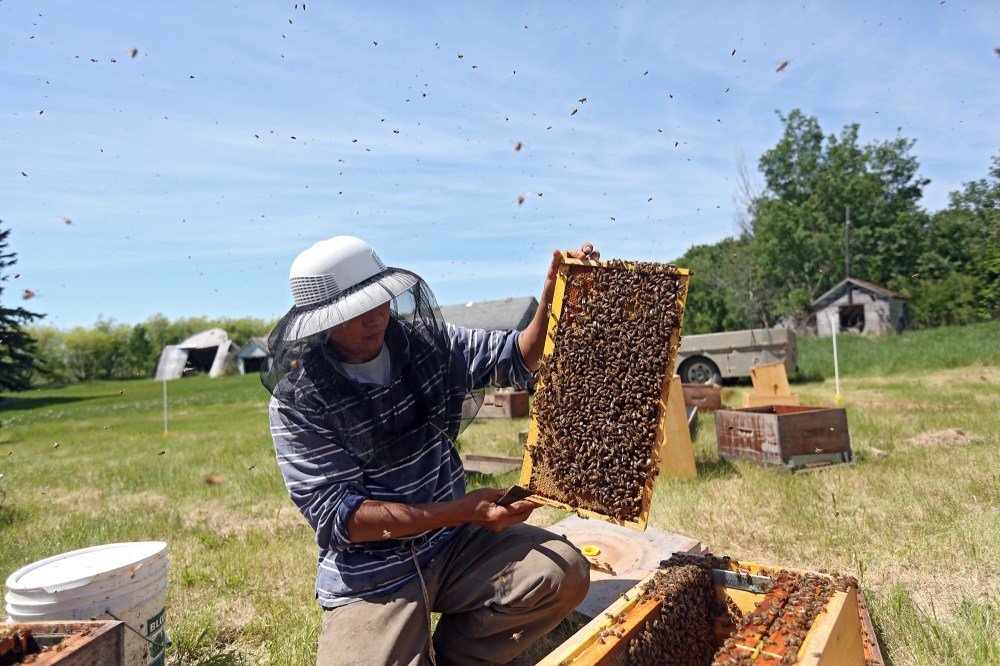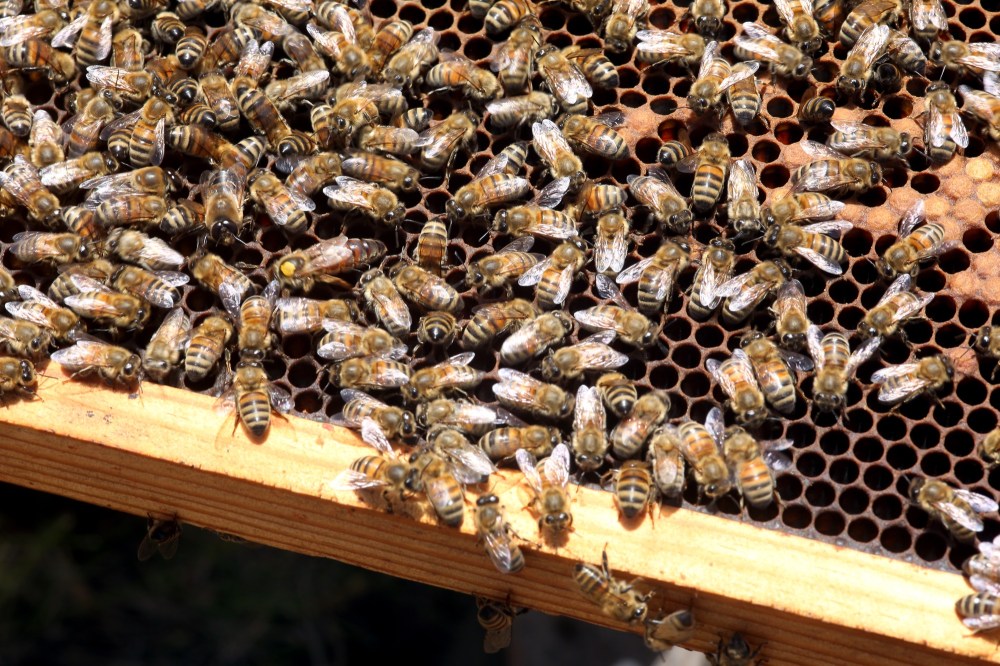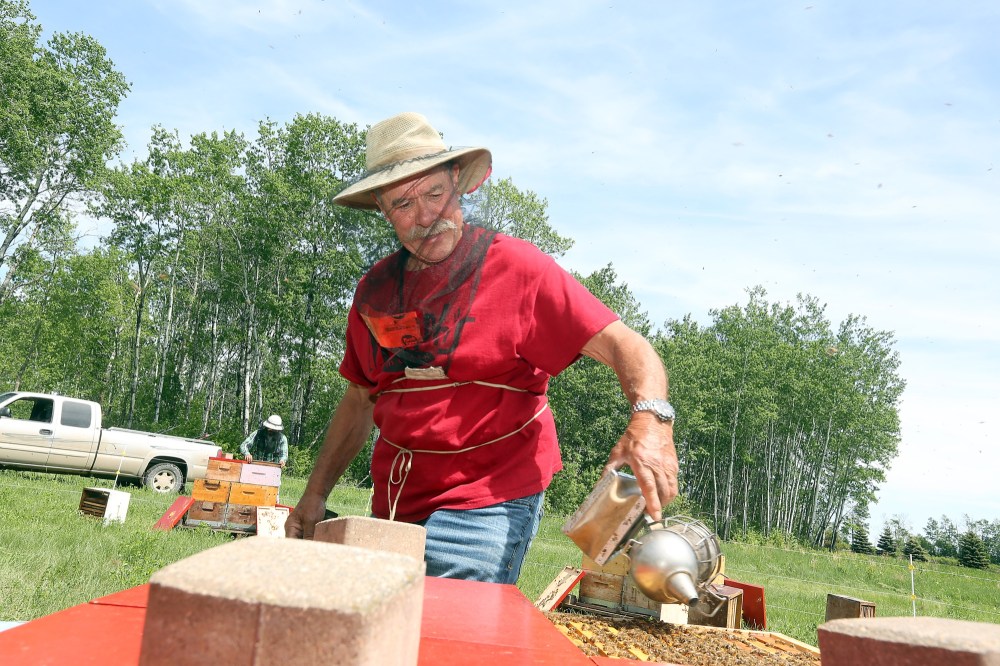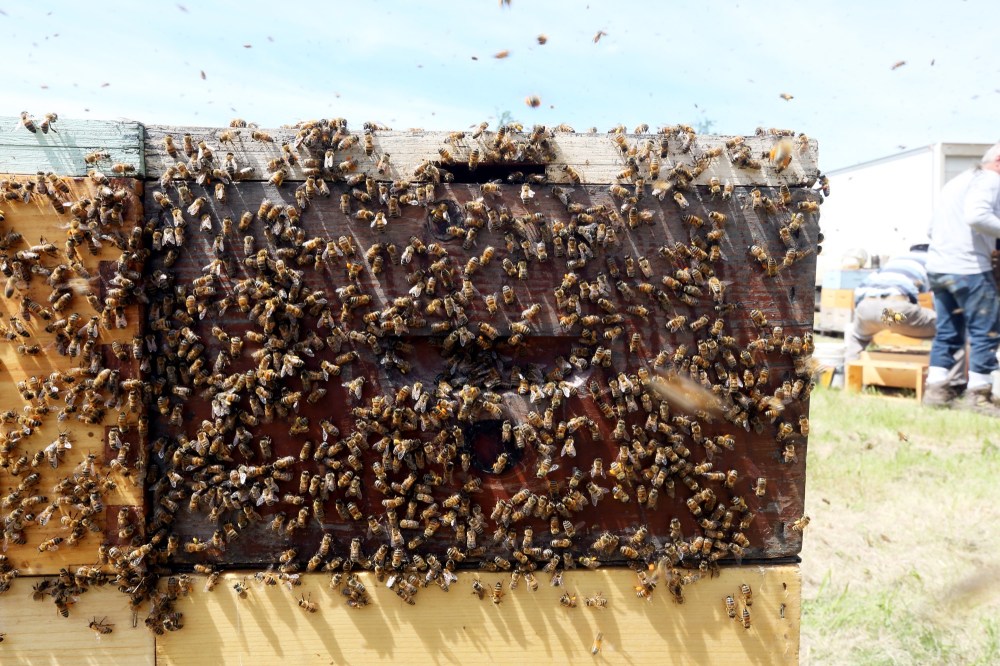Business is Buzzing in Roblin
Advertisement
Read this article for free:
or
Already have an account? Log in here »
We need your support!
Local journalism needs your support!
As we navigate through unprecedented times, our journalists are working harder than ever to bring you the latest local updates to keep you safe and informed.
Now, more than ever, we need your support.
Starting at $15.99 plus taxes every four weeks you can access your Brandon Sun online and full access to all content as it appears on our website.
Subscribe Nowor call circulation directly at (204) 727-0527.
Your pledge helps to ensure we provide the news that matters most to your community!
To continue reading, please subscribe:
Add Brandon Sun access to your Free Press subscription for only an additional
$1 for the first 4 weeks*
*Your next subscription payment will increase by $1.00 and you will be charged $20.00 plus GST for four weeks. After four weeks, your payment will increase to $24.00 plus GST every four weeks.
Read unlimited articles for free today:
or
Already have an account? Log in here »
Hey there, time traveller!
This article was published 28/06/2018 (2790 days ago), so information in it may no longer be current.
Aglobal enterprise with direct links to the Asian marketplace and a new packaging facility slated to open in Roblin, Wendell Estate Honey is keeping up with the times.
The company is comprised of more than 4,000 hives spread between approximately 120 locations between Manitoba and Saskatchewan, which require owner Tim Wendell to work some long hours; particularly during this time of year.
The days might be long, but Wendell said that it doesn’t feel like work most of time time, particularly the hours he spends with his tiny little buzzing bosses.

“I’m not the boss, the girls are the bosses,” he said of his bees, after capping off another 12-plus hour work day in late May, during which he took care of both the business side of things as well as his bees.
“That’s who we work for, because they’re the ones that pay us. If they don’t pay me, I don’t pay (my employees), so these are the bosses, without a doubt.”
His day began by checking emails at 5:30 a.m., after which he hosted a meeting in Roblin where he hopes to open up a packaging facility. Their honey packaging operations currently take place in MacNutt, Sask., a village located on the eastern edge of the Saskatchewan border near Roblin.
While the ever-expanding company extends Wendell’s workdays, chipping away at the time he’s able to spend with his “girls,” it’s the time he spends tending to his buzzing business partners’ needs when he’s in truly in his element.
On-site earlier in the day at properties located between Roblin and Russell, Wendell appeared at peace with his bees, joining several employees in shifting them from their smaller winterized hives into regular-sized hives for the summer months.
This is a piece of heaven on earth in a way, because there’s not a lot of noise, there’s not a lot of chemicals, there’s not a lot of people and we get to be here with nature
“There’s probably no better place that I’d rather be at this time of year than a bee yard … It’s work, it’s got to be done and I work hard, but if you like what you do it’s not so much work, no matter what it is … I’m in it.”
Wendell has been “in it” since was a kid, and is the second generation of his family to take the helm of Wendell Honey.
His father, John, started keeping bees in Saskatchewan during the mid-’30s kick-starting a raw honey operation that would later be called Wendell Honey and much later encompass the value-added Wendell Estate Honey enterprise.
Initially made up of approximately 50 hives, by the time Wendell bought his father out in 1974 it was made up of 400.
Expanding beyond a raw honey exporter and packaging their own product since that time — and bringing the Asian marketplace into the fold — it has since grown to its current 4,000 hives.
Wendell Honey’s story highlights what Manitoba Beekeepers’ Association president Mark Friesen said is becoming a reality of the times.

“Like all farming, we’re seeing that same situation where beekeepers tend to get very large-sized operations,” he said, adding that it all comes down to the economies of scale, not that current prices are doing them any favours.
With the majority of exports going to the United States, whose president’s protectionist rhetoric Friesen said has carried a trickle down impact via “buy local” initiatives, the finances behind producing raw honey for export have been increasingly tight.
“Last year when the price really crashed, I talked to three new commercial beekeepers who’d never done packaged honey and they were moving into that market, where they could put their product on the nearby shelves,” he said.
Although prices weren’t as harsh in 2011 as they are now, Wendell said that riding the commodity market’s ebbs and flows for decades led him to finally take the plunge at the time and produce a value-added product for local and overseas sales.
Selling raw product below the cost of production back in 2005 provided a significant enough blow that Wendell said that making an investment toward value-added products during a more prosperous time to help them survive the next market dip is a decision he’s now looking back on with gratitude.
He said that it also helped that a business partner presented the product to a receptive panel of entrepreneurs on the television show Dragon’s Den in 2013, and although it resulted in an a business offer at the time, Wendell said that things don’t always turn out like they appear on television.
Certain strings were attached to the deal that affected its viability, though Wendell said that he still gives the show credit for getting their name out there, which opened some doors for them.
With interest in their high-grade prairie Canadian honey on the rise, Wendell said that he also credits his son Jeremy, a medical doctor who lives in China with his wife Carol, with helping him market his product overseas.
“They’re busy with their own lives, but they’ve been helping out since they are there,” Wendell said, adding that he has also flown out to the Asian country to attend trade shows.
Although much of the enjoyment he gets out of his professional life comes out of caring for his bees in the prairie fields, Wendell said that the satisfaction that comes with sharing their high quality product with others provides a decent icing on the cake.
With “so much fake honey in the world” supplemented by things like rice syrup, he said that being a purist in the “gong show” that makes up a significant portion of the honey industry as it currently exists can be satisfying.

Friesen said that Canadian honey, largely fuelled by bees’ pollination of canola crops, is a near-white honey that’s sought around the world, and that few other marketplaces can rival it.
“You can always heat up the white honey that Canadians have and make it a golden colour, but you can’t make darker honey from foreign countries lighter,” he said, adding that Canadian honey is oftentimes used to enrich the other honeys.
This, Wendell said, is why his sale of raw product, which he still engages in to a degree, is a far less rewarding endeavour than exposing people to their pure, value-added packaged product, which he considers the “Mercedes” of the honey market.
On the company’s website, wendellestate.ca, a 1kg jar of their honey retails for $44.
When they sell it in bulk, others down the line use it in the manner that Friesen described, wherein it’s used to used to enrich cheaper product.
“They just wreck it,” Wendell said. “They take my nice honey and mix it with ugly honey, so it’s kind of a generic colour, looks like honey and kind of tastes like honey, but they kind of wreck it.”
Increasing their production capacity to meet the demand they’re uncovering, Wendell Estates Honey is currently looking to expand their packaging operations into Roblin, an effort of which Wendell is currently finalizing the specifics.
With Wendell’s skillset best utilized in the fields, he said that he has always tried to get the right people on board to help the company reach its potential, including his sons Jeremy and Nathan.
Despite breaking ground on unique careers of their own — Jeremy as a medical doctor and Nathan as a psychologist — both have opted to help the family business.
They echo their father’s experience, with the elder Wendell having started a teaching career in the United States prior to returning home to take over the family business a few decades ago.
Joining the Wendell family with beekeeping duties are temporary foreign workers alongside a number of longstanding employees, such as Jake Dingman, who joined Wendell Honey while he was growing up in MacNutt and has kept at it ever since.

Dan Margarit emigrated from Romania to join Wendell Honey, keen on tackling a new way of doing things after beginning his beekeeping career in his native country.
While playing soccer in Grade 7, he chased a ball into a field where he came upon a swarm.
Returning with a box, he managed to capture it and was not stung.
Drawing experience from his grandfather, who was a beekeeper, he set out to do the same, later relocating to Canada to see how Canadians do it.
Pointing to these and other long-time beekeepers, Wendell said that there’s something special about honey producers that keeps them in the game for so long.
Part of it’s an affection for the bees, he said — a point that he makes abundantly clear through the pride he exudes in describing the “gentle” buck fast strain of bees that he works with, which is a Denmark variety he gets through the University of Guelph.
Placing his flattened hand on a comb crawling with bees, he gently pet the swarm to illustrate his point, resulting in zero stings.
Another explanation might be the venom in the bees’ stings, he said with a chuckle, adding, “We get stung too much and we can’t do without it.”
